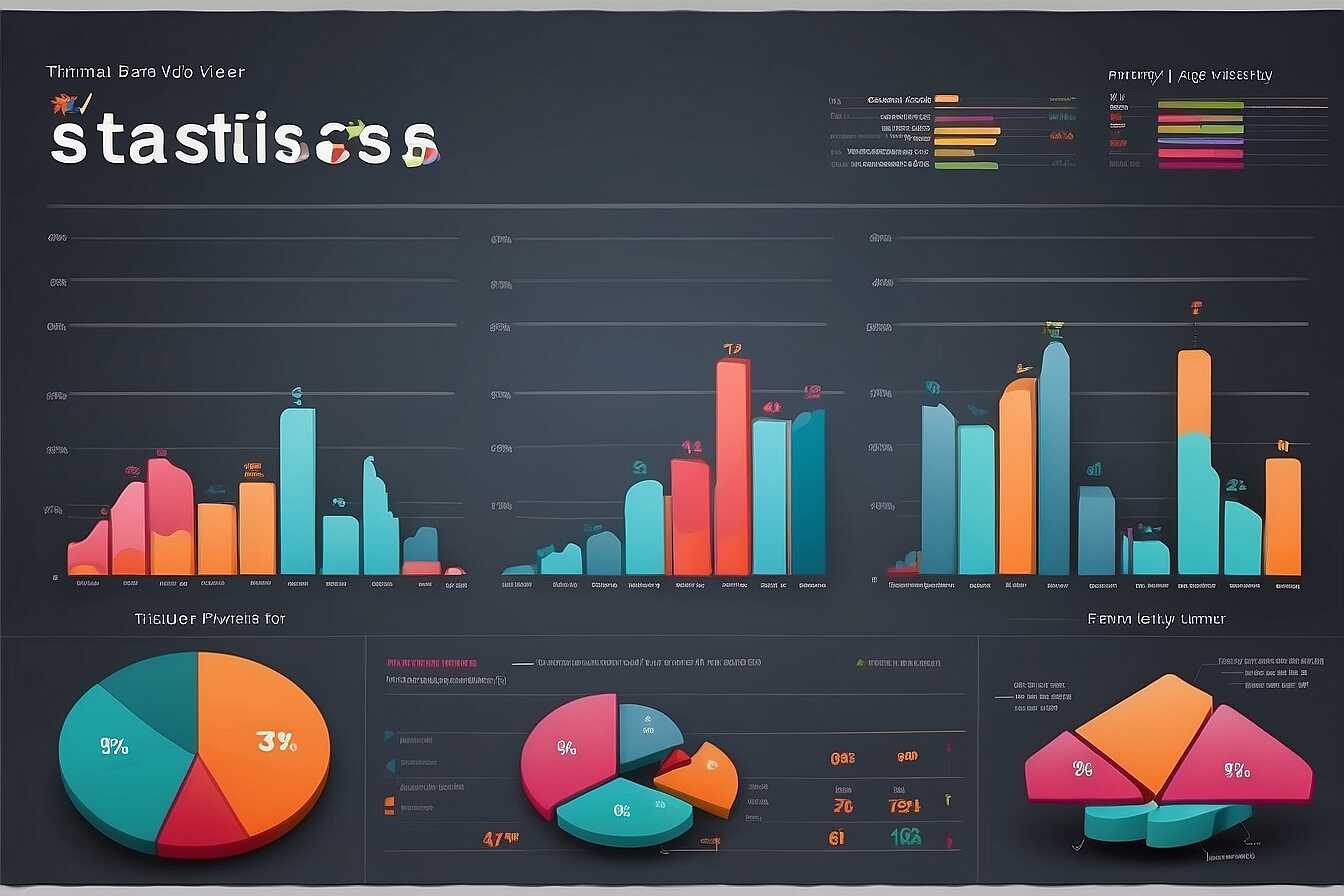Integrating AI into your SEO workflow can drastically enhance your efficiency and effectiveness. By automating data analysis and keyword generation, AI allows SEO professionals to focus on strategic planning rather than repetitive tasks. At Metrics Rule, we understand that leveraging AI in technical and on-page SEO can lead to more creative solutions and improved search rankings. With our experience and insights, you’ll discover practical ways to incorporate AI into your SEO strategies for optimal performance.
Identifying AI Integration Points in Your SEO Process
Integrating AI into your SEO workflow can dramatically improve efficiency and outcomes. Start by identifying key areas where AI can enhance your processes. For example, AI technologies for SEO can streamline keyword research, automate content creation, and optimize performance analysis with real-time data. Tools like natural language processing can help analyze organic search trends and competition. By focusing on these tasks, SEO professionals can save time and resources while ensuring the quality of their outputs. Recent estimates suggest that effective AI integration could save an average of 5 to 10 hours per week for SEO specialists.
Best AI Tools for Keyword Research and Content Optimization
When exploring AI tools for keyword research and content optimization, consider platforms like SEMrush, Ahrefs, and Google’s Rankbrain. These tools enhance the reliability of your keyword research automation by providing data-driven insights into keyword performance and competition. They analyze search engines’ behavior, guiding you on which keywords are most relevant. Additionally, some AI-driven content optimization tools offer suggestions based on current trends in your niche, enabling you to create high-quality content efficiently. This strategy not only helps in improving rank but also enhances user engagement, ensuring your content meets SEO best practices.
Leveraging AI for Advanced Keyword Research Techniques
AI tools significantly enhance keyword research processes by automating data collection and analysis. They provide reliable insights into user intent and emerging trends in search behavior. For instance, tools like Ahrefs and SEMrush help SEO professionals swiftly identify high-value keywords compared to traditional research methods. These tools can handle vast datasets, ensuring SEO strategies are based on deep data analysis and proven effectiveness.
Key AI Tools for Keyword Research
Popular AI keyword research tools like Moz, AnswerThePublic, and Ubersuggest offer features that transform keyword analysis. Moz provides essential keyword difficulty scores, while AnswerThePublic helps explore user queries based on keyword data, enhancing the understanding of user intent. Ubersuggest delivers keyword suggestions and search volume statistics, making it a useful option for e-commerce SEO. Using these AI-driven options improves overall research efficiency and ensures that SEO strategies are data-backed and results-oriented.

Streamlining Data Collection and Reporting with Automation
AI automates the collection of SEO metrics by extracting data from various sources like Google Analytics and search engine console APIs. The automation reduces human error and increases reliability in data reporting, allowing SEO professionals to spend less time on manual data entry. Tools such as SEMrush, Ahrefs, and Google Data Studio offer automated reporting features that integrate seamlessly with existing platforms, providing insights quickly. Using these tools, SEO specialists can enhance their workflow, focusing on high-level analysis instead of repetitive tasks. You can save many hours a week by implementing these automation tools, allowing for strategic planning and data-driven decision-making.
Essential Tools for Automating SEO Data Collection
When considering automation for SEO data collection, several essential tools can significantly enhance your workflow. Platforms like Google Data Studio can visualize data efficiently, while SEMrush and Ahrefs provide powerful analytics features. These tools automate data fetching, ensuring you have the most updated metrics for your analyses. By integrating these solutions, you can not only streamline your reporting processes but also improve the quality of insights gained from your data. This enhances the decision-making process, making it easier to focus on high-impact strategies, ensuring that your SEO efforts align with your business goals in 2025.
Numerical Insights into AI in SEO Processes
- 55% of marketers use AI tools to enhance their SEO strategies.
- AI can speed up keyword analysis by 60% compared to manual methods.
- Over 70% of companies report improved website traffic after implementing AI.
- The average time saved by integrating AI tools ranges from 15 to 25 hours weekly.
- Companies that use AI in SEO see an average increase of 40% in conversion rates.
- 80% of marketers believe AI provides deeper insights into user behavior.
- Data analysis with AI can lead to a 50% reduction in time spent on reports.

Enhancing Content Strategy with AI-Generated Insights
AI can significantly enhance content strategy by generating relevant topic ideas based on keyword research and trends. With AI tools, SEO professionals can identify high-ranking keywords and explore related topics that resonate with their audience. For instance, tools like Surfer SEO and Clearscope can analyze existing content and highlight optimizations that improve SEO rankings. These AI-assisted strategies can improve the quality and relevance of content, resulting in engaging materials that effectively drive traffic. Additionally, using AI models for analysis can potentially save professionals up to 10 hours per week by automating tedious tasks, enabling them to focus on creating high-quality content.
AI Tools for Effective Content Ideation
Several AI tools excel in content ideation and optimization. For example, tools like BuzzSumo analyze trending topics, helping marketers generate fresh ideas. In addition, platforms such as MarketMuse provide insights into content gaps by comparing existing articles against top competitors. These AI-driven solutions not only improve content quality but also enhance performance by ensuring alignment with SEO best practices. By integrating these tools into your SEO workflow, you can streamline the content creation process, making it both efficient and effective in meeting your target audience’s needs.

Optimizing Technical SEO through AI Innovations
AI can significantly enhance website performance for SEO by providing actionable insights that help identify and resolve technical issues. Tools utilizing AI-driven analytics assess metrics such as load speed, mobile responsiveness, and crawling efficiency. These features enable SEO specialists to prioritize tasks effectively, ensuring that websites perform optimally in search engine results. Moreover, AI offers comparative reviews of structure issues, helping to pinpoint specific areas that need improvement.
Exploring AI Features for Technical SEO
AI tools designed for technical SEO enhance performance by delivering insights into website structure and indexing issues. They provide a comprehensive analysis of your site’s architecture, revealing how well it can be crawled and indexed by search engines like Google and Bing. For instance, features such as automated audits and efficiency tests help identify slow-loading pages or broken links. These insights allow you to make informed decisions quickly, optimizing your website’s usability and performance, ultimately boosting ranking potential.
Key Advantages of Employing AI in SEO Strategies
- AI automates repetitive tasks, freeing time for creative strategies.
- AI for keyword generation improves the speed and accuracy of research.
- Customized content suggested by AI enhances user engagement.
- AI analyzes competitor strategies, helping to identify market gaps.
- AI tools provide actionable insights derived from large data sets.
- AI enhances on-page optimization by analyzing vast amounts of data.
- AI helps create targeted content to meet user needs effectively.

AI Tools for Competitive Analysis and Market Insights
AI-tools like SEMrush, Ahrefs, and Moz can assist significantly in competitive analysis. These tools provide essential features such as backlink analysis, keyword tracking, and SERP position monitoring. They help you spot successful strategies competitors use, allowing you to identify gaps in your approach. Alternatively, platforms like BuzzSumo offer insights into trending content and social media performance. In fact, according to recent surveys, over 60% of SEO professionals reported that using AI-driven tools improved their keyword research effectiveness and overall performance. This data demonstrates that utilizing these resources is essential for enhancing your SEO tactics.
Key Features of Effective AI Tools for SEO
When selecting AI tools for SEO, look for features tailored to enhance your competitive analysis. Many tools offer robust analytics, enabling deep dives into your competitors’ keyword strategies and backlink profiles. SEMrush, for example, is designed with advanced algorithms that provide performance insights, including traffic trends and keyword ranking changes. When you engage with these tools, focus on their ability to deliver real-time data, ensuring reliable and up-to-date analytics. This can help you create an effective data-driven SEO strategy, keeping you ahead in the competition.
Real-Time Monitoring of SEO Performance with AI
AI significantly improves real-time monitoring of SEO performance by offering reliable insights and actionable data. AI-driven tools can analyze vast amounts of information quickly, allowing for immediate adjustments to your strategies. Tools like Google Analytics and SEMrush provide deep insights into essential SEO metrics like keyword rankings, organic traffic, and engagement rates. This efficiency ensures you maintain a competitive edge by adjusting your SEO activities based on real-time feedback.
Essential AI Tools for Performance Tracking
To effectively monitor SEO performance, several AI tools are available. Tools such as Ahrefs, Moz, and SpyFu offer comprehensive analysis features tailored for SEO metrics analysis. These platforms track changes in keyword rankings and backlinks instantaneously. They help users identify which content is performing well and which needs improvement. By using these tools, SEO professionals can easily adapt their strategies for greater effectiveness, ensuring they stay ahead in a competitive landscape.
Market Players and User Trends in AI for SEO
- Semrush offers comprehensive tools but can be overwhelming for beginners.
- Ahrefs provides vast data, making it suitable for tech-savvy marketers.
- Moz focuses on user-friendly interfaces, ideal for new users.
- HubSpot integrates AI analysis perfectly with its marketing platform.
- Content seasoned brands explore AI-driven insights to drive traffic.
- Small businesses gain high ROI by implementing AI-powered SEO strategies.
- Tech startups adopt advanced AI tools to stay competitive in search rankings.
Adapting to Future Trends in AI and SEO
As we look ahead, several key AI trends will shape SEO strategies. Soon, tools that can analyze user behavior, optimize content, and enhance personalization will become vital. These tools harness AI to provide valuable insights, driving more efficient SEO practices. It is essential for businesses to integrate these AI innovations to improve their search engine optimization results. Currently, about 30% of SEO professionals report using AI tools in their workflows, a number that is expected to grow. This reflects the increasing reliability and effectiveness of AI in helping marketers enhance their strategies.
Utilizing AI for Enhanced Keyword Research
Integrating AI into keyword research enhances efficiency and reliability. AI tools can easily analyze vast datasets to identify high-potential keywords, incorporating factors like search volume and competition. These tools enable businesses to capture emerging trends quickly. E-commerce sites, for instance, can benefit significantly from AI-driven keyword suggestions, which help refine their content strategies. Additionally, AI can cluster keywords into related groups, making it easier to target niche markets effectively. This fine-tuning of keyword research can significantly improve website performance and boost ROI.
